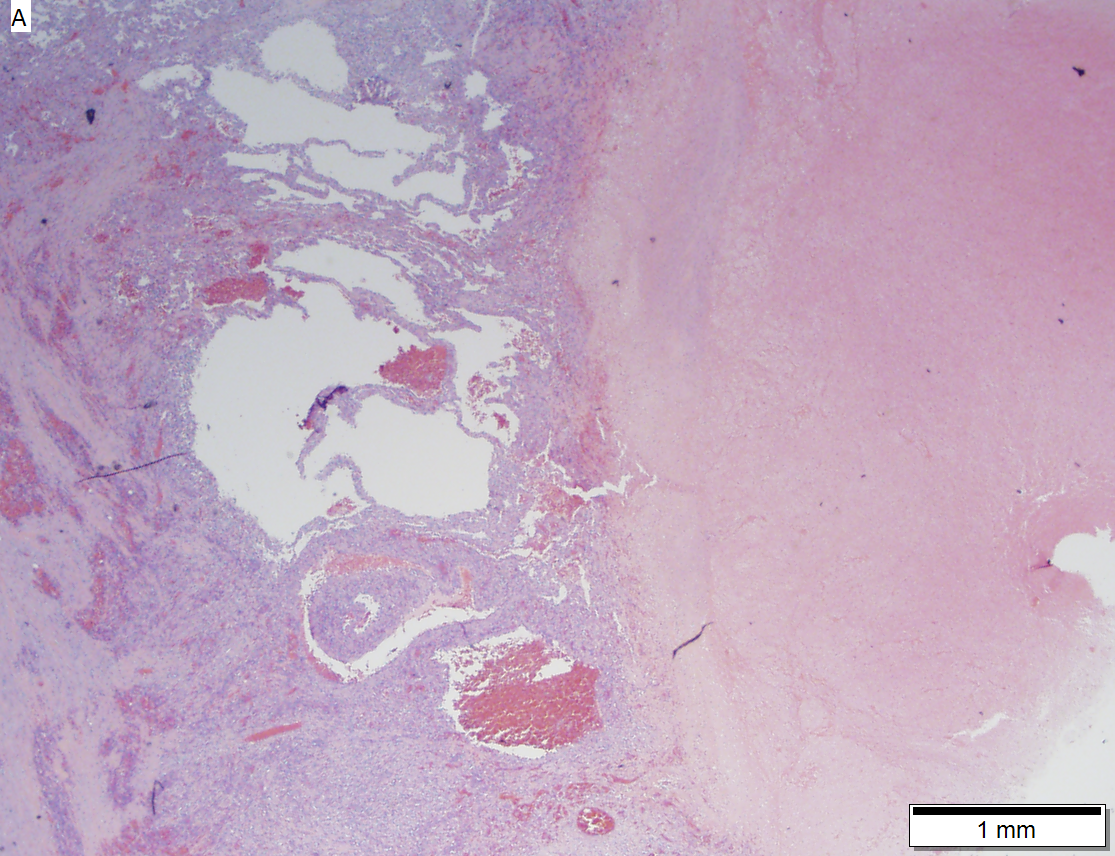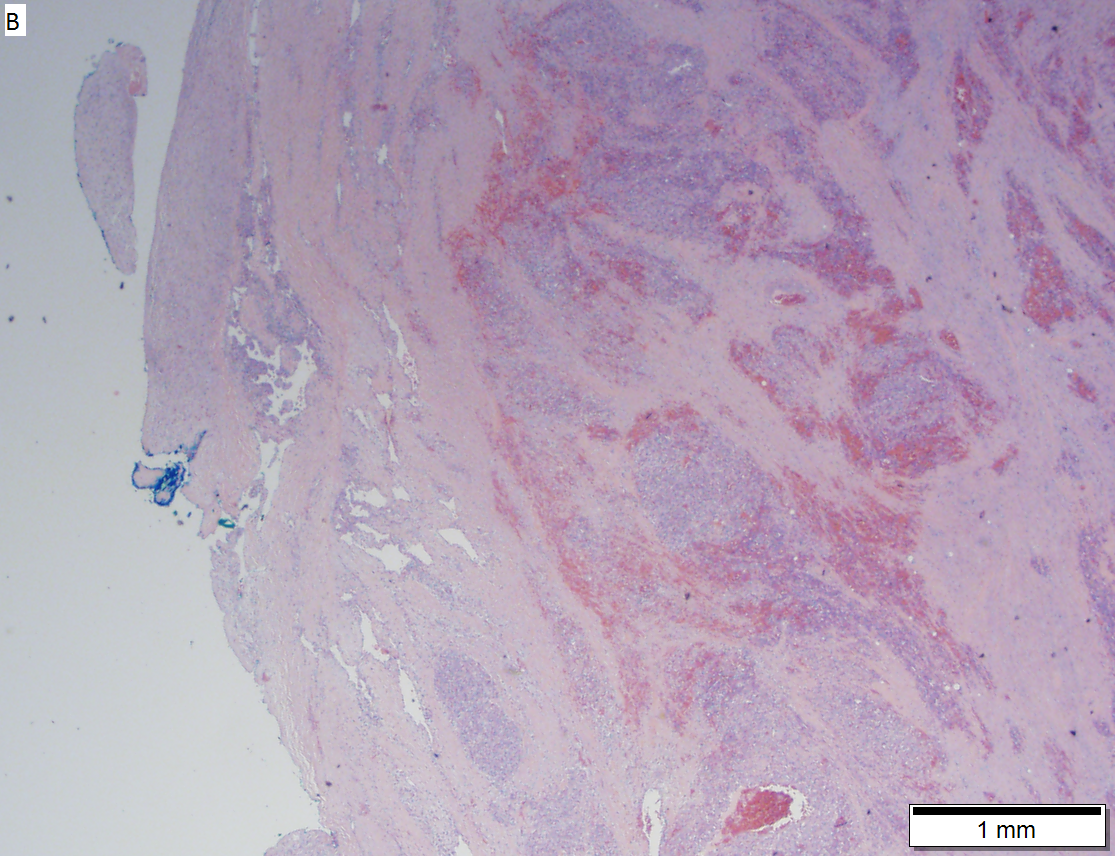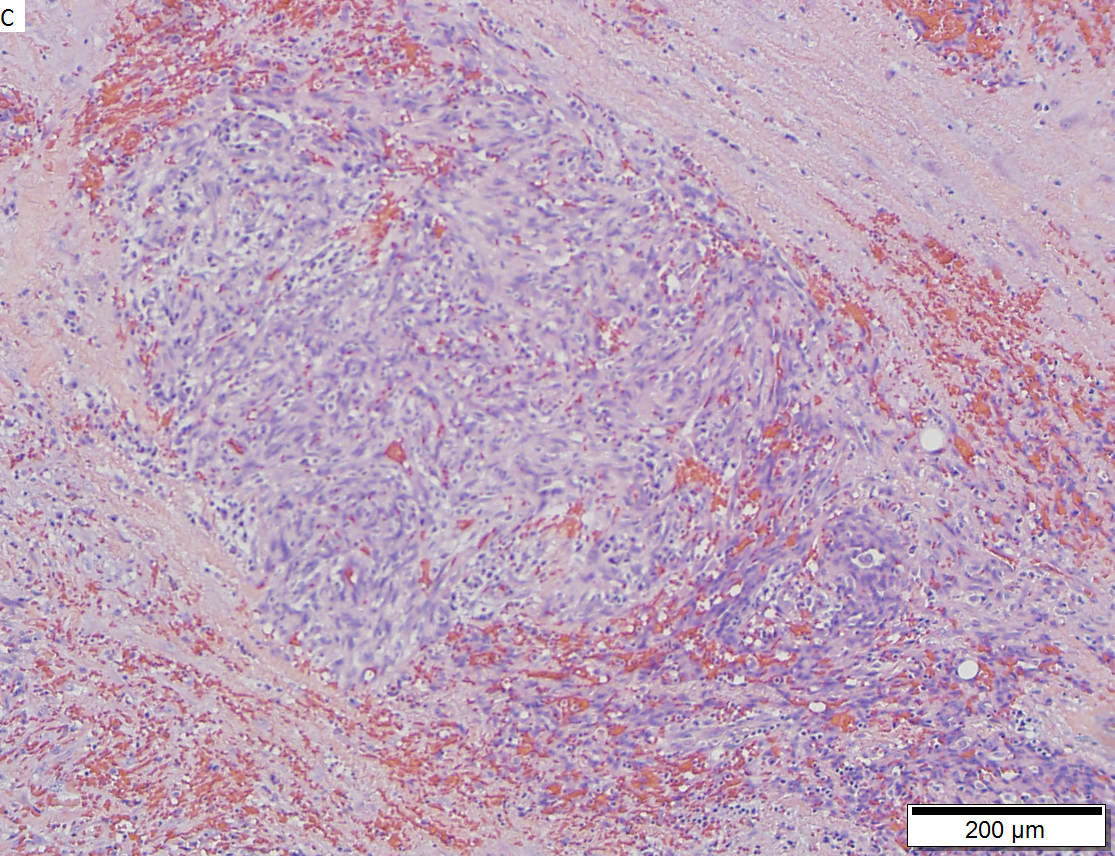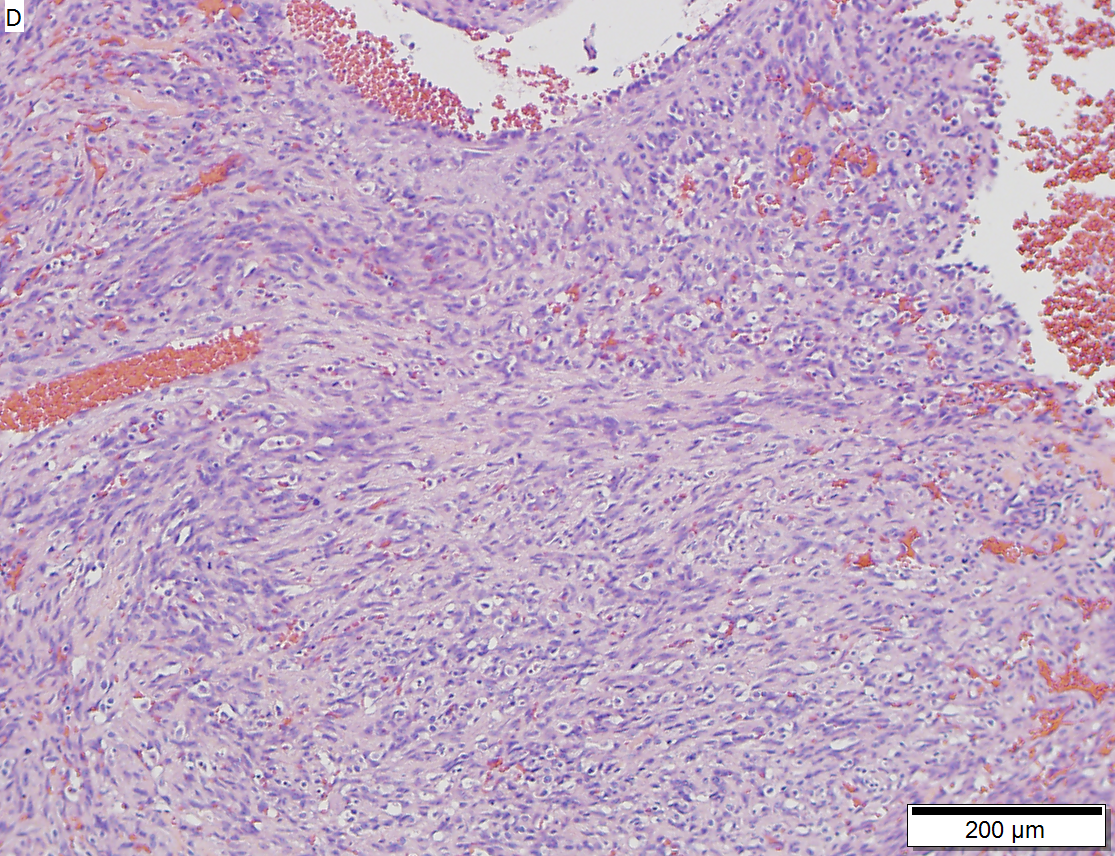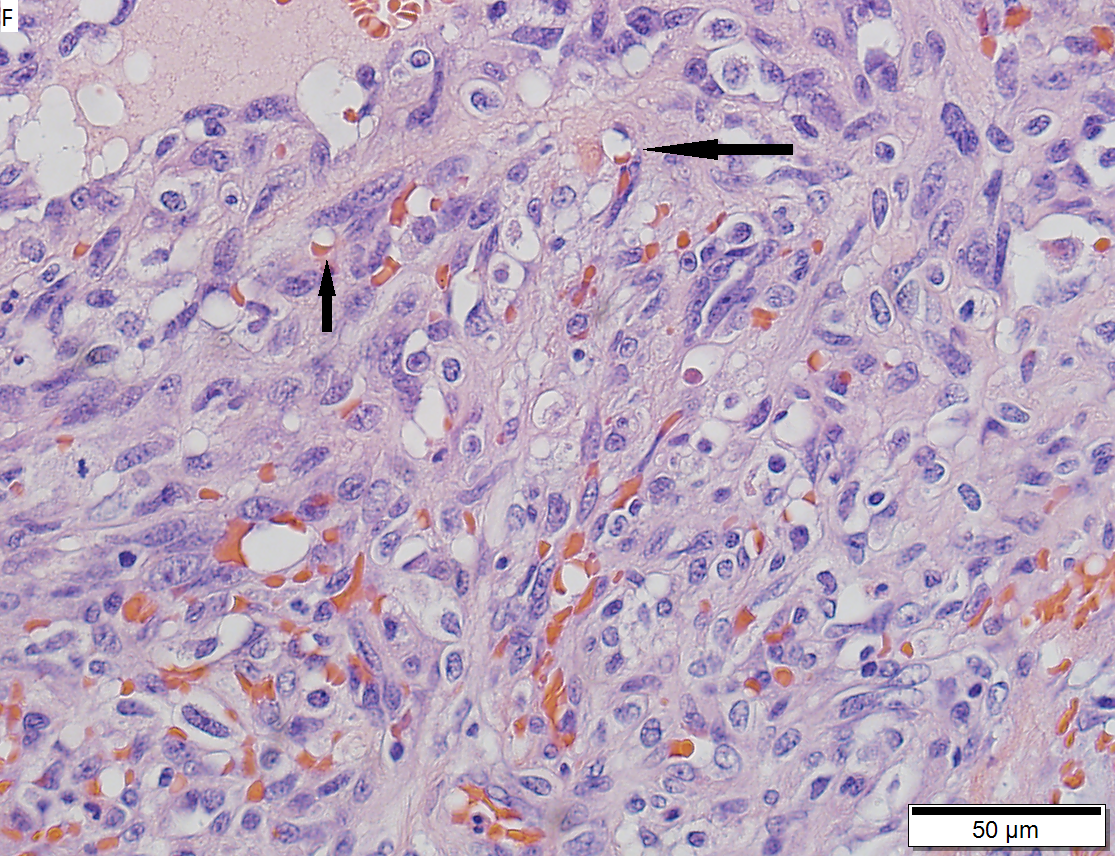Cardiac tumours
Cardiac tumours are rare buggers. They provide some work for cardiac surgeons.
Most common malignant
- Metastases - most common cardiac tumour; 1:~100 primary tumours:secondary tumours.[1]
Primary heart tumours
- Approximately 10% of resected (primary) cardiac tumours are malignant.[2]
- 90% are sarcomas.
- 10% are lymphomas.
In order of frequency:
Notes:
- If one is considering only valves - papillary fibroelastoma is No. 1.
Malignant heart tumours (in order of frequency):[1]
- Undifferentiated.
- Angiosarcoma.
- Leiomyosarcoma.
Note:
- According to WMSP:[3] Most common primary malignant tumour of the heart = angiosarcoma.
Specific entities
Cardiac myxoma
Main article: Cardiac myxoma
This includes the common atrial myxoma.
Papillary fibroelastoma
- AKA fibroelastoma.
- Should not be confused with elastofibroma.
- AKA giant Lambl excrescence.[4]
General
- Usually an incidental finding.
Gross
- Friable appearing.
- Yellow.
- Typically on free edge.
Image:
Microscopic
Features:[6]
- Braching papillary fronds which are:
- Composed of collagen, and
- Avascular.
- +/-Elastic tissue.
- Surrounded by:
- Endothelium, and
- Mucopolysaccharide.
Images
Cardiac rhabdomyoma
Main article: Rhabdomyoma
- Very rare.
- Benign.
- Associated with tuberous sclerosis.[7]
Rhabdomyosarcoma
See rhabdomyosarcoma.
Lipoma
Main article: Adipocytic tumours
- Like lipomas elsewhere in the body.
- Usually location: left ventricle, subendocardial.[3]
DDx:
- Lipomatous hypertrophy.[8]
Cystic tumour of the atrioventricular nodal region
Main article: Cystic tumour of the atrioventricular nodal region
Angiosarcoma
Angiosarcoma of right atrium. A. Luminal clot tops tumor with blood filled spaces. B. Tumor replaces myocardium. C. Irregularly branched vessels, sometimes associated with extravasated erythrocytes. D. Irregularly aggregated and oriented spindle cells. E. Cells vary in size and shape much more so than an organizing thrombus or hemangioma. Note luminal tufts (green arrows), clustered large cancer nuclei with nucleoli (blue arrows). F. Cytoplasmic vacuoles, some with erythrocytes (arrows).
See also
References
- ↑ 1.0 1.1 Castillo, JG.; Silvay, G. (Mar 2010). "Characterization and management of cardiac tumors.". Semin Cardiothorac Vasc Anesth 14 (1): 6-20. doi:10.1177/1089253210362596. PMID 20472615.
- ↑ Burke A (February 2008). "Primary malignant cardiac tumors". Semin Diagn Pathol 25 (1): 39-46. PMID 18350921.
- ↑ 3.0 3.1 Humphrey, Peter A; Dehner, Louis P; Pfeifer, John D (2008). The Washington Manual of Surgical Pathology (1st ed.). Lippincott Williams & Wilkins. pp. 135. ISBN 978-0781765275.
- ↑ Loire, R.; Pinède, L.; Donsbeck, AV.; Nighoghossian, N.; Perinetti, M. (Apr 1998). "[Papillary fibroelastoma of the heart (giant Lambl excrescence). Clinical-anatomical study on 10 surgically treated patients].". Presse Med 27 (16): 753-7. PMID 9767897.
- ↑ URL: http://www.e-heart.org/pages/09_Cardiac_Tumors/09_Cardiac_Tumors_Primary_Benign_Cardiac_Papillary%20Fibroelastoma_001.htm. 5 March 2013.
- ↑ URL: http://www.pathologyoutlines.com/hearttumor.html. Accessed on: 16 May 2011.
- ↑ Yinon, Y.; Chitayat, D.; Blaser, S.; Seed, M.; Amsalem, H.; Yoo, SJ.; Jaeggi, ET. (Aug 2010). "Fetal cardiac tumors: a single-center experience of 40 cases.". Prenat Diagn. doi:10.1002/pd.2590. PMID 20721876.
- ↑ Miller, DV.; Tazelaar, HD. (Mar 2010). "Cardiovascular pseudoneoplasms.". Arch Pathol Lab Med 134 (3): 362-8. PMID 20196664.


